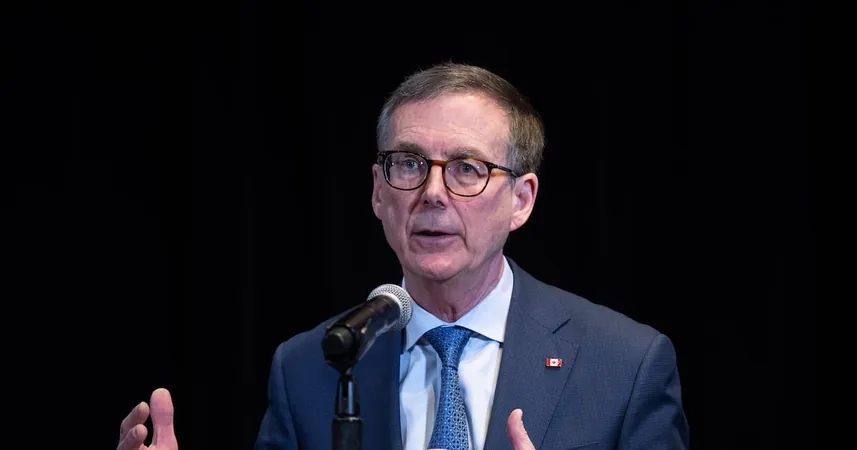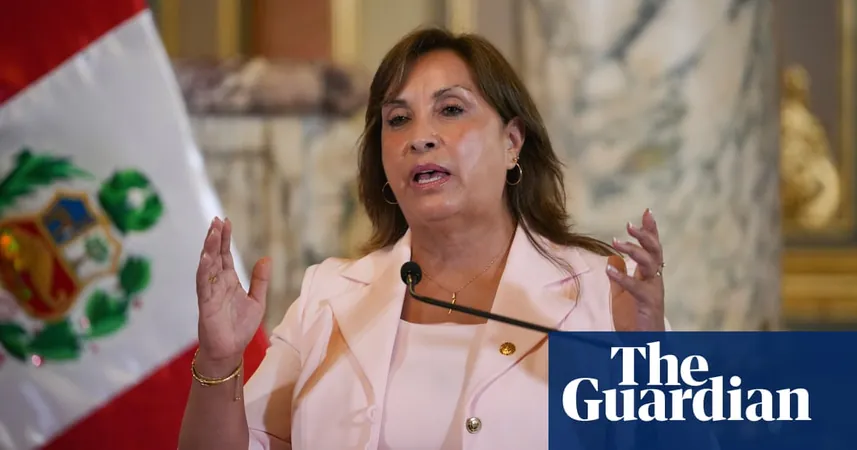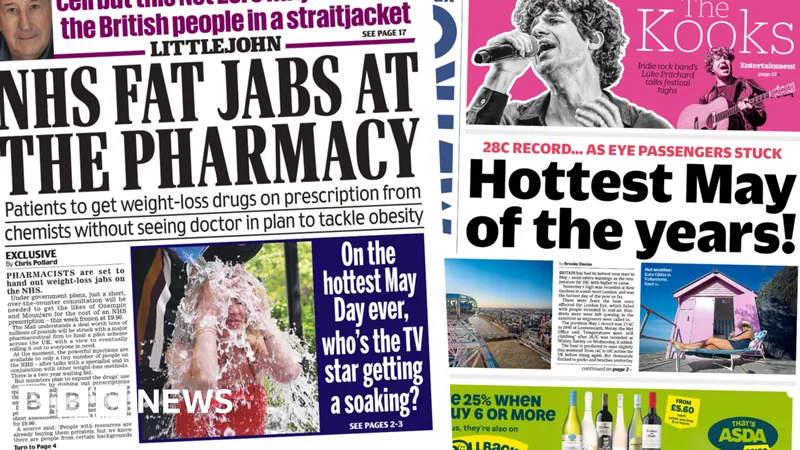
Bank of Canada Set for Key Decision Amid Tariff Turmoil: What You Need to Know
2025-04-15
Author: Jacob
Economic Uncertainty Looms Over Bank of Canada
The Bank of Canada is preparing to freeze interest rates as it contemplates the impact of ongoing trade tensions initiated by U.S. President Donald Trump. With a policy interest rate currently at 2.75%, officials led by Governor Tiff Macklem are expected to take a moment to assess the situation before making any drastic moves.
Trump's Trade Policies and Their Impact on Canada
Recently, Trump spared Canada from heightened tariffs but has still imposed taxes on various Canadian products, including automobiles and aluminum. In retaliation, Canadian Prime Minister Mark Carney introduced 25% import taxes on select U.S. goods, although some exemptions were made.
Economic Outlook Deteriorates Due to Tariffs
The ongoing trade war has severely undermined both business and consumer confidence, leading economists to revise their growth forecasts downward while raising inflation predictions, indicating a potential stagflation scenario for Canada.
A Conservative Approach to Monetary Policy
Ahead of a pivotal tariff announcement that sent markets into a tailspin, Macklem hinted at a more cautious approach to monetary policy. He acknowledged that the bank might avoid the detailed projections typically included in its quarterly reports, opting instead for a range of potential outcomes, similar to its strategy during the early days of the COVID-19 pandemic.
Mixed Signals on Rate Cuts
Despite speculation on a possible rate cut, many analysts, including Ian Pollick from the Canadian Imperial Bank of Commerce, believe the Bank of Canada is unlikely to make such a move this week. A survey revealed that 17 out of 30 economists foresee the bank maintaining current rates amid lingering uncertainties.
Reacting to Inflation Trends and Trade Instability
Recent reports show a surprising dip in inflation rates. However, traders are shifting their expectations, now giving a two-thirds probability to the Bank maintaining its current interest rate. Officials remain cautious about the potential for tariffs to trigger sustained inflation, limiting their ability to lower rates.
The Larger Economic Picture Amid Political Context
As Canada braces itself for an election campaign, some economists speculate that political factors might influence monetary policy choices. With the U.S. being Canada’s largest trading partner, prolonged trade skirmishes could lead to decreased growth and adverse effects for the Canadian economy.
In Conclusion: A Delicate Balancing Act Ahead
Despite the challenges, economists from the Royal Bank of Canada believe that the country possesses sufficient economic tools, including fiscal stimulus, to navigate through these turbulent times effectively. As the Bank of Canada prepares for its decision, all eyes will be on how it plans to balance its role as a stabilizing force against an unpredictable global trade landscape.









 Brasil (PT)
Brasil (PT)
 Canada (EN)
Canada (EN)
 Chile (ES)
Chile (ES)
 Česko (CS)
Česko (CS)
 대한민국 (KO)
대한민국 (KO)
 España (ES)
España (ES)
 France (FR)
France (FR)
 Hong Kong (EN)
Hong Kong (EN)
 Italia (IT)
Italia (IT)
 日本 (JA)
日本 (JA)
 Magyarország (HU)
Magyarország (HU)
 Norge (NO)
Norge (NO)
 Polska (PL)
Polska (PL)
 Schweiz (DE)
Schweiz (DE)
 Singapore (EN)
Singapore (EN)
 Sverige (SV)
Sverige (SV)
 Suomi (FI)
Suomi (FI)
 Türkiye (TR)
Türkiye (TR)
 الإمارات العربية المتحدة (AR)
الإمارات العربية المتحدة (AR)